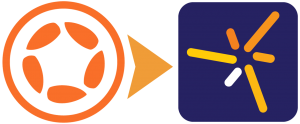01 June 2017
Corona Roadmap 2017
![]() One of our most frequently asked questions is about our feature roadmap. Where is Corona headed? What’s next on the horizon? While product roadmaps can be unpredictable, and items may be added/removed/postponed, the following roadmap should give you a general sense of what our plans are, with the understanding that they are subject to change without notice.
One of our most frequently asked questions is about our feature roadmap. Where is Corona headed? What’s next on the horizon? While product roadmaps can be unpredictable, and items may be added/removed/postponed, the following roadmap should give you a general sense of what our plans are, with the understanding that they are subject to change without notice.
This roadmap covers the remainder of 2017 and early 2018 and includes the features we are currently planning. These are estimated start dates. In most cases, we hope to start and complete the items during their listed quarter, but some items are large projects and will span multiple quarters. Also there is no implied order for each quarter — some items toward the end of each quarter list may be finished before items near the beginning are even started.
Q2 2017
- Revenue-share based AdMob plugin, to complement the paid AdMob plugin.
- Paid Facebook Audience Network (FAN) plugin without revenue share, to complement the free FAN plugin.
- Paid AppLovin plugin without revenue share, to complement the free AppLovin plugin.
- Make Corona Enterprise free by merging it with Corona SDK into one product (Corona).
- Make the Welcome Window more useful with better access to the Marketplace, documentation, and more.
- Update our websites.
- New animation plugin for more customizable and controllable tween/timeline animations.
- Modernize Corona Simulator for Windows. This may include:
- Build progress bar.
- Cancel a build in progress.
- Add post-build options (copy to device, show folder, etc.).
- Capture
adb logcatinformation to console log. - Simplified keystore creation.
Q3 2017
- Add support for CoronaBuilder to download plugins.
- Maps plugin.
- Calendar plugin.
- Contacts plugin.
- Begin working on Marketplace 2.0.
- Simplify (one-click) integration of Appodeal (maybe other ad networks too).
- Cache plugins for Simulator builds.
- Improve system events such as adding a low battery warning.
- Plugin GUI in the Simulator.
- Trial use of plugins.
- Open access to CoronaBuilder for all users.
- Start making more Simulator functionality “skin dependent” so that different code paths for different platforms can be tested more easily.
- Resume HTML5 development.
- Tile engine.
Q4 2017
- Native ads for AdMob.
- Research backgrounding of music.
- Revisit web views.
- Android TV 4K support.
- Make translation (internationalization/i18n) library.
- Enhance expansion file support.
- Migrate internal Android build scripts to use Gradle/Android Studio.
- Add AAR support to plugins.
- Graphics improvements such as addressing seams between tiled objects, vertex coloring in meshes, etc.
- Better integration of Corona and Android Studio.
- Individual Firebase components as plugins.
- Text rendering plugin.
Q1 2018
- Complete support of builds for HTML5.
- Fix hybrid draw issue with physics.
- Begin open-sourcing parts of Corona.
- Improve tvOS support (add missing features like IAP and Game Center support).
- Support
media.playVideo()with RemoteSource on tvOS. - Improve audio features.
- Restructure Corona on iOS to be a dynamically-linked framework.
- Optimize touch events.
- Improve support for utility apps (video, widgets, text support, etc.).
- Research Torch plugin.
- Add ability to customize autocomplete on native keyboards.
- Amazon IAP improvements.
Please reach out to us with any questions or comments on this list. Once again, this is a projected roadmap and it’s subject to change.
If one of your most desired features is not on the list, don’t panic — please continue to submit or gather votes at our feature request site. We will continue to evaluate features requested by Corona developers and we may alter the roadmap as we get more feedback.


Sorry, the comment form is closed at this time.